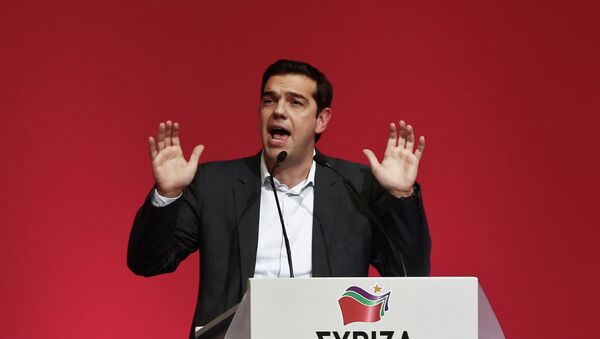“If we do not want Greece to fall into the abyss and want to help, then we need to discuss ways to reduce Greece’s debt,” Riexinger said.
He said that decreasing interest rates could be one way of helping Greece tackle its debt, since it was unclear why the country had to pay three percent annual interest when the European Central Bank’s rate was close to zero.
Riexinger stressed that changes were crucial for Greece at this point, since the country was suffering from a grave economic crisis, with unemployment reaching almost 30 percent. He also pointed out that three million Greeks currently had no access to healthcare services, while the country’s GDP was 25 percent lower than five years ago.
Echoing earlier speculation about Greece’s possible exit from the Eurozone, following left-wing Syriza’s victory, the German politician said that a potential Grexit could cause problems for the euro, with the currency weakening dramatically.
Riexinger also said that Syriza leader Alexis Tsipras, who was sworn in earlier on Monday as Greece’s new prime minister, was genuine in his intention to help Greece in such difficult times, and normalize the situation in the country.
Syriza has pledged to put an end to the widely unpopular austerity measures imposed by EU bankers, including severe budget cuts and tax hikes. The party's leader also assured that his party did not plan on Greece exiting the eurozone.


